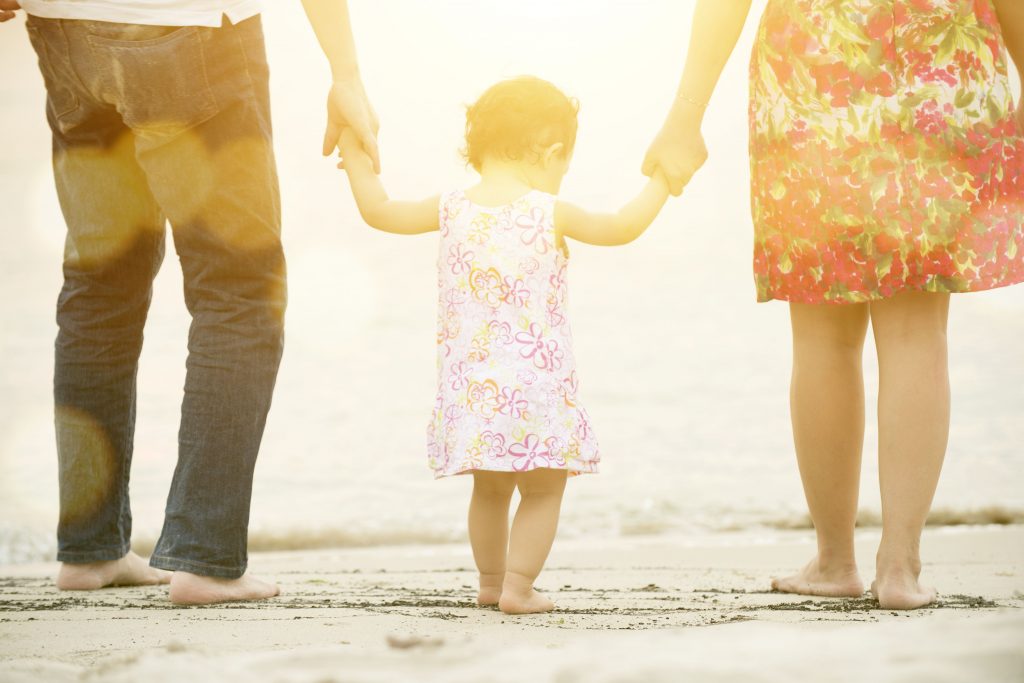When adoption is reduced to self-fulfillment for adults, children in need lose
There’s a battle going on across the country over one of the noblest of human transactions: adoption. While everyone agrees that orphaned or abandoned children need and deserve a permanent, loving family, there is disagreement over what that family should look like.
Faith-based adoption agencies, generally Christian or Catholic, insist on a married mother and father, according to their deeply held beliefs — the same set of beliefs that make them so successful in their mission to serve vulnerable children.
Activist organizations like the ACLU (American Civil Liberties Union), focusing exclusively on the “rights” of same-sex couples, would like to put these agencies out of business.
That the ACLU would use its resources to attack adoption agencies and thereby reduce the chances of children to find families would make no sense to me, if I hadn’t learned so much about the issue when I became an adoptive parent.
During the long process of adopting our fifth child, I spent many hours preparing by haunting internet chat rooms and adoption-related blogs. My husband and I were parents by biology many times over, but this was a whole new world.
We learned, for instance, that children who have spent months in orphanages or foster homes require special care. They need to be coaxed to attach to their new mother and father — for most, the first reliable human contact of their short lives. The adoptive parents have to move at the child’s pace, which can be difficult, especially after months or years of anxious anticipation.
This knowledge served me later, when my new little daughter refused to be held or touched, preferring to gaze at me seriously and intently from across the room. It hurt, but I was patient. I had learned that in time she would let herself trust me, and we would form the bond that would last all our lives.
The web’s adoption-community chatter was not all about process and practicalities, however. There was also a lot about the philosophy of adoption — its intent and purpose — and who was meant to be the primary beneficiary.
It turns out there are two distinct camps. In one camp, the emphasis is on the prospective parents, unable to procreate biologically, and their sharp desire for a child. The baby or child is a priceless vehicle of fulfillment for the parent or parents.
This group uses the secular, psychological language of self-realization and self-actualization, and the new parents consider themselves the primary beneficiaries.
In the other camp are those who see adoption as the rescue of a child. You might call this altruistic adoption. In this reading, the person of concern is the orphaned or unwanted child, and the child’s urgent need to be delivered from loneliness by a forever-family. This group tends to be religious and uses the language of faith to talk about adoption.
These two different approaches to adoption become a much larger issue when you move from internet chat rooms and onto adoption policy. If, as in the first reading, the focus is on what childless adults want, then the emphasis is on the rights and equal treatment of adults.
For a faith-based adoption agency to accept only married opposite-sex couples as prospective parents looks like an injustice when viewed through the parental-rights prism. An unmarried couple, a “married” same-sex couple, or a single man or woman would seem to have the same “rights” to an orphaned or abandoned child.
This is why the state of Massachusetts, for instance, passed a law that prohibited Catholic Charities from limiting placement to married, opposite-sex couples.
The agency, which for many decades had specialized in difficult placements, including abused children and those with special needs, was forced to shut down its adoption services. The same thing happened in San Francisco, Washington, D.C. and Illinois.
These faith-based adoption agencies refused to comply with state laws barring “sexual orientation discrimination” because they did not consider adoption a service to meet the needs or desires of adults, but an act of mercy for desolate children.
And these children, especially those with disabilities and those who have survived the trauma of abandonment and the loneliness of foster or orphanage care, need and deserve a mother and father who are in a stable, committed marriage. When giving up their precious children, knowing that the good of the child is the first consideration in placement leads many birth-parents to choose faith-based agencies over secular ones.
Hoping to preserve the Catholic and Christian agencies that help so many hard-to-place children, Michigan and several other states passed laws allowing them to preserve their policies in the name of religious freedom.
The ACLU is currently suing Michigan, seeking to put the faith-based agencies out of business. The good that they do for the neediest children is nothing, it seems, when placed in the balance against the feelings of adults who are directed to an organization that will accommodate them.
Ten years later, our adopted daughter, who was abandoned on the street at birth and spent many months being neglected in a crowded orphanage, is flourishing now in her stable, cheerful home. In choosing her new parents, it was her needs and her future that were important, not the rights and privileges of adults.
She was, after all, the vulnerable, abandoned one, the one whose future was all at stake. I can tell you, though, that it turns out that we are more blessed than she is. She is the best of daughters, and a source of great joy.
Dr. Grazie Pozo Christie grew up in Guadalajara, Mexico, coming to the U.S. at the age of 11. She has written for USA TODAY, National Review, The Washington Post and The New York Times, and has appeared on CNN, Telemundo, Fox News and EWTN. She practices radiology in the Miami area, where she lives with her husband and five children.

